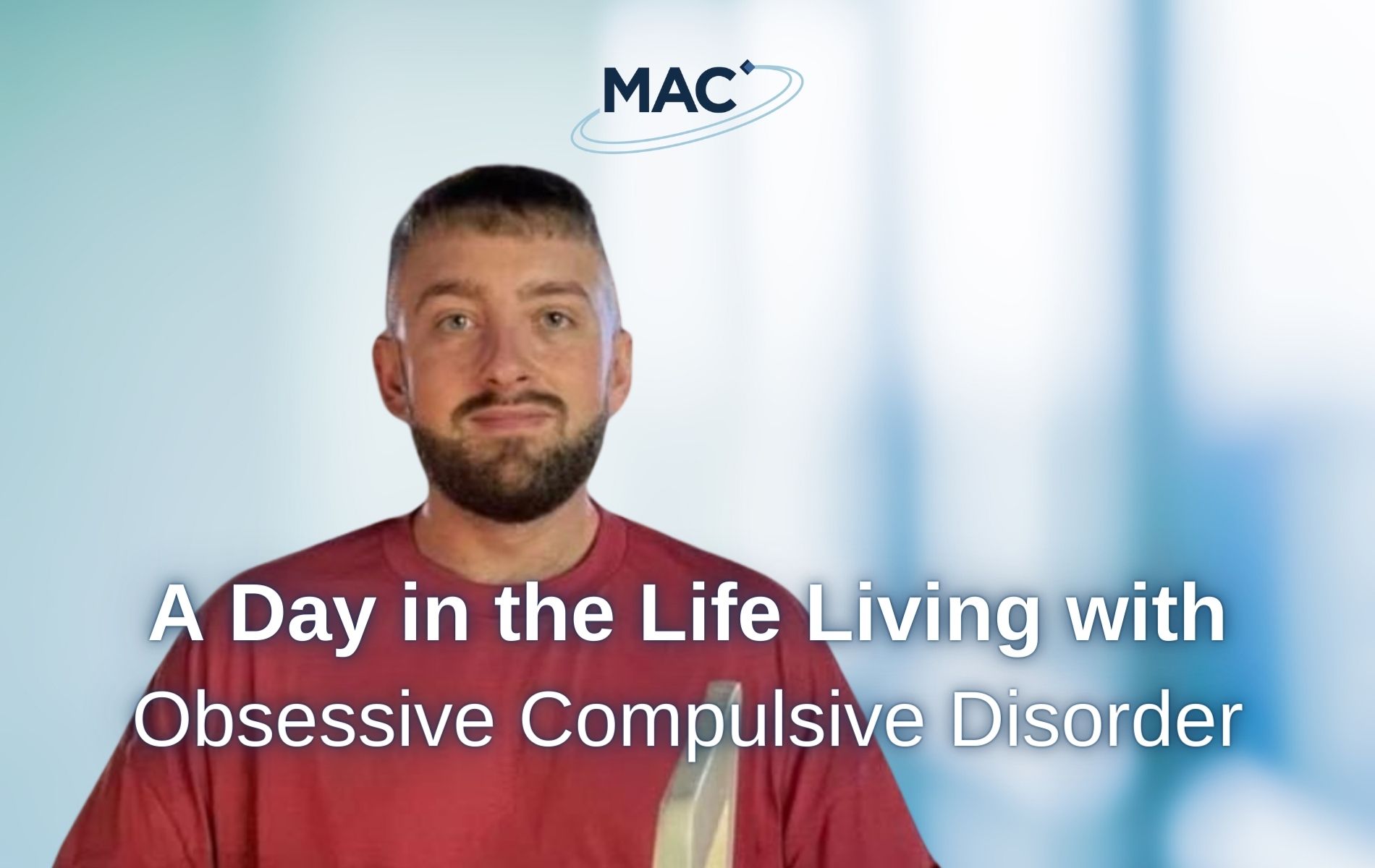Jonathan lives with Obsessive Compulsive Disorder, otherwise known as OCD. In order to give an insight into his condition and his experience, he shared with MAC a typical day in his life grappling with this mental health condition.
What is OCD?
OCD is a mental health condition characterised by two primary components: obsessions and compulsions. Obsessions typically manifest as intrusive, distressing thoughts, images, or urges that repeatedly enter a person’s mind. These thoughts are often irrational and can vary widely, from fears of contamination to concerns about harm coming to loved ones. Compulsions, on the other hand, are repetitive behaviours or mental acts that individuals with OCD feel compelled to perform to alleviate the anxiety caused by their obsessions, however, this relief is only temporary.
An estimated three-quarters of a million people are living with and affected by OCD in the UK1.
A Day in the Life with OCD
When Jonathan wakes up, he notes that his anxiety is at its highest point. He says: “The anxiety-provoking thoughts, spikes & obsessions from the previous day come flooding in all at once.”

The impact of OCD on Jonathan is evident to those close to him, with his partner describing him as “a shell of the person [he] used to be”, and his father noting a constant “dark cloud over [his] head 24/7”. As the day unfolds, brief respites from obsessions are followed by a return to a nightmarish cycle of relentless daydreaming, rendering his mind to be what he describes as “an uncontrollable battleground”.
Research has shown that around 94% of people living with OCD experience intrusive thoughts2.
Many people living with OCD use compulsions to mitigate the anxiety surrounding their unwanted intrusive thoughts. These compulsions can include things such as obsessive checking, and repeating phrases out loud or in one’s head.
For Jonathan, compulsions only provide temporary relief from his intrusive thoughts. He says: “Before you know it, you’re right back to square one. This adds frustration on top of your shameful thoughts, exhaustion, sadness, and suffering.”
Jonathan’s coping mechanisms vary—compulsions include “confessing, checking, googling, finding internet experts to obsessively watch, trying to find others going through exactly what you’re going through, and avoidance”.
As the day concludes, Jonathan eagerly looks forward to sleep, but even this respite is not guaranteed. He says: “At the end of the day, all you have to look forward to is hopefully going to sleep. But depending on the day, OCD will throw insomnia into the mix.
“Now, you’re exhausted but can’t sleep due to obsessing. When you finally get to sleep it’s just a matter of time until you have to wake up and start the cycle all over again.”
Jonathan’s poignant description frames OCD as “a life of torment”, a condition that spirals out of control and makes each day a unique challenge.
Taking Part in a Clinical Trial
When seeking relief for his condition, Jonathan found MAC Clinical Research’s clinical trial for OCD, testing a potential new treatment for the condition.
If you are currently living with OCD or OCD symptoms that are impacting your daily life and feel that your current antidepressant medication is not fully helping, you could be eligible to take part in the latest OCD clinical trial at MAC Clinical Research.
The trial is investigating a medication that is thought to target a different signalling pathway in the brain to current OCD treatments, which may help to control obsessive or compulsive behaviours. With your participation, you may be able to contribute to scientific research, which could lead to a new medicine to help people living with OCD.
The trial is taking place at MAC clinics in Lancashire, Greater Manchester, Merseyside, South Staffordshire, South Yorkshire, Teesside, and West Yorkshire.
To be eligible, you must:
- Be aged between 18 and 65 years old.
- Have had OCD or OCD symptoms for at least 1 year that is affecting your everyday life.
- Feel that your current OCD medication (antidepressant) is not fully working.
Eligible participants may receive up to £490 for their time and commitment to the study, along with reasonable travel costs. If the treatment works, you may be allowed to continue taking it (known as an open-label extension) for up to 48 weeks. For more information on how you can get involved, visit our OCD Research page.
1 NHS Inform – Obsessive compulsive disorder (OCD)
2 Concordia University – Surprising truth about obsessive-compulsive thinking




